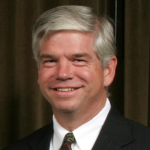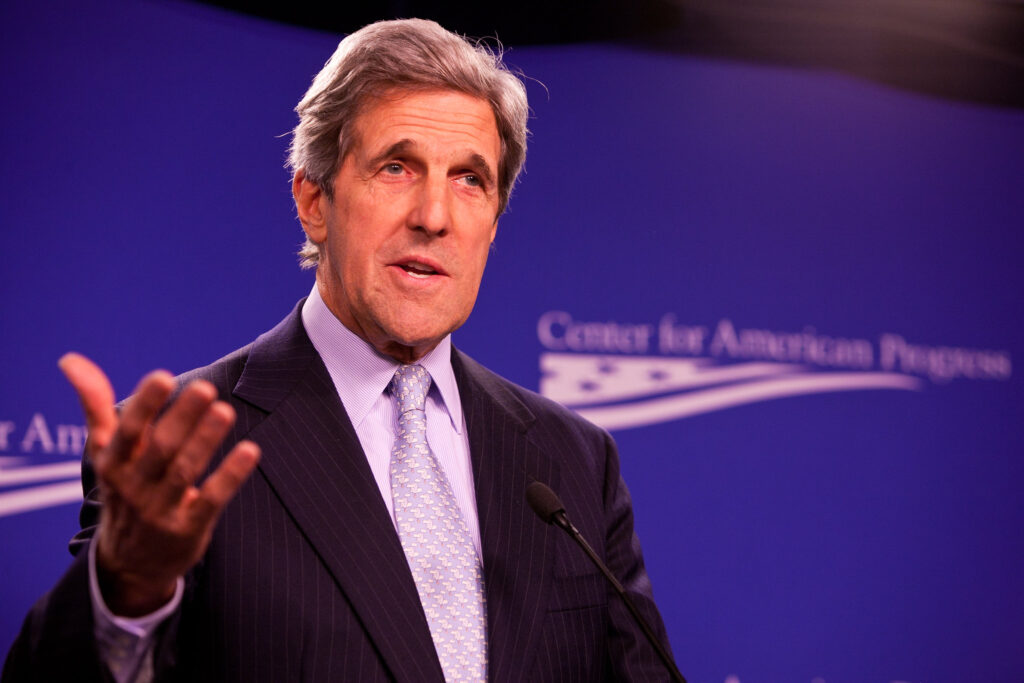One of the more famous anecdotes in U.S. Senate history dates from early 1914 when a protracted debate centered on unrest in the country during the progressive era. Kansas Senator Joseph Bristow had bellowed through a repetitive speech in which he said at least ten times, “What this country needs…” finishing each line with a different prescription. The presiding officer, Vice President Thomas Marshall, leaned over the desk and quietly said to the assistant secretary, Henry Rose, “What this country needs is a good five-cent cigar.”
The quip became instantly famous in numerous newspapers and cigar companies deluged the VP’s office with hundreds of boxes, to prove there already were many good five-cent cigars. Marshall was always known for his wit and friends lamented that he wasn’t taken more seriously because of it. President Wilson’s closest advisor, Edward House, said, “Marshall was held too lightly. An unfriendly fairy godmother presented him with a keen sense of humor. Nothing is more fatal in politics.”
Ever since, the Bristow/Marshall line has been the cliché perhaps most overused in politics. America is heavily populated by “experts” who want to tell everyone “what this country needs,” or even “what the world needs.” We are surrounded, indeed inundated, by experts at every turn, people who know what others should be doing, and who seek to decide nearly every aspect of our lives, because they are the ones who know.
The rest of us blindly go about our business, driving to work every day, dining every evening, engaging in our chosen recreation on the weekends, each in our own pursuit of happiness. Left to our own devices, we would certainly destroy our homes, lands, environments, and probably the planet itself. That’s why we require experts who know what we really need. Leaders who can properly make policy and protect us from ourselves by regulating our activities and our otherwise bad choices.
These experts know what we should and should not do on public lands, what kind of cars we should drive, what appliances our homes need, and what kind of foods we should eat. The types of windows, doors, and roofs we need, what species of birds we should have, where we should put our trash, whether we can turn right, and when we can water our lawns.
Such leaders obviously knew what we all needed when they banned Cuban cigars, Mark Twain books, raw milk, lawn darts, metal Tonka trucks, British Cadbury chocolate, and candy cigarettes. They are still doing what we all need in proposing to ban mining, drilling, gas stoves, internal combustion engines, plastic straws, low-paying jobs, fireworks, turfgrass, and air conditioners.
This month’s news featured stories about John Kerry, the first “U.S. Special Presidential Envoy for Climate,” who in a ranting lecture at the annual climate conference in Dubai called for a global ban on the world’s most abundant and affordable energy source. “The climate crisis and the health crisis are one and the same,” he thundered, “There shouldn’t be any more coal fired power plants permitted – anywhere in the world.” Not in the third world where people are desperate for electric power to free them from drudgery and starvation – not anywhere.
Kerry said, “I find myself getting more and more militant,” but in truth he has always been a control freak, the stereotypical silver spoon activist. He was born into the Forbes family, married into the Heinz fortune, and has been mostly on the public payroll, in elected and appointed offices for 46 years. He’s never had a real job, though he did serve in the Navy for two years in Vietnam, service for which he apologized and which he has often repudiated.
Like vast numbers of climate “experts,” he has no education or training in climate science, or any science. What qualifies him to instruct the rest of the world on where, or whether, it should get electricity?
Experts like Kerry, ivy league politician Al Gore, high school dropout Leonardo DiCaprio, and King Charles with his Cambridge degree in art history, have been lecturing the world on this highly-controversial and poorly understood scientific discipline for years – while they arrive via private jets and live in palaces. And lecture everyone about things that should be banned – things ordinary people depend on in their daily lives.
There is an old Henny Youngman joke, borrowed more recently by P.J. O’Rourke, that says, “What this country really needs is fewer people who know what this country really needs.” I am tempted to propose banning people who want to ban things.
First published at GregWalcher.com.
Photo by Center for American Progress, CC BY-ND 2.0 DEED.
The Climate Change Weekly Newsletter has been moved to HeartlandDailyNews.com. Please check there for future updates!





